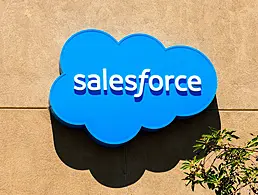With every job interview, the questions don’t change but your answers will, so learning to anticipate them and tailoring your answers is half the battle.
Job interviews are daunting, but they are also pretty formulaic in that the same kinds of questions come up again and again. Medtech employers want to know the same kinds of things as IT employers, so you can come to predict the general ‘Why do you want to work here?’ type questions and answer them effectively.
The more industry-specific and skills questions are more difficult to plan for. You can try and predict to the best of your ability the things your interviewer will be interested in finding out about, but you can never fully predict what they will ask on the day.
In this piece, we’ll break down some of the most frequently asked questions and we’ll take a look at some recommended talking points so you can spend more time concentrating on the more specialist questions where you can really shine.
It’s important to say, however, that you should always approach every interview you do with interest and care, so answering questions like you have rote learned them is not a good way to make a first impression. This article is intended as an indicator of what you could say, but you should always try and make your answers to questions – even the most formulaic of questions – as unique and fresh as possible.
How did you hear about this position?
A straightforward question, a straightforward answer. If you were recommended to apply for the position by a friend or someone already in the company, do mention that.
Otherwise, a simple answer like: “I follow the company on LinkedIn and saw there were multiple roles open so I looked at the job specs and picked X role because it suited me the most.”
Why did you decide to apply?
Lots of people see jobs that they think they like the sound of but they don’t actually end up applying for them. Tell the interviewer why you were motivated to apply to this role in this company.
Use phrases like: “I was motivated to apply because…” and don’t take it for granted that the person you’re talking to knows why you want the job. Whether you were impressed by the benefits package or things you have heard about workplace culture or career progression, spell it out.
Why should we hire you?
The emphasis is on the word “you” here. They want you to sell yourself as a prospective employee and persuade them to hire you based on your skills, qualities, experience and what you plan to bring to the organisation.
This question – and the next one on the list – is a more difficult version of the classic interview question ‘Tell me about yourself.’ It’s more focused, more targeted and requires you to use more persuasive language. Think back to the job spec and the company values and use them as inspiration for how to answer this question.
Why do you want to work here?
Companies who pride themselves on strong workplace cultures like to know that whoever they are hiring will be conscientious and willing to make links with other colleagues to create a good working environment.
Yes, a job is a job, and you might be applying for a lot of the same types of positions because you need a job and you have skills in a particular area, but when you get called to an interview you should really figure out why you would pick X company over Y company.
How do you prefer to work?
With flexible working taking off in recent times, this is your chance to tell your interviewer what kinds of working conditions you are hoping for. Be upfront and honest about what you want and need because they will have requirements for you also.
Say things like: “I prefer remote working because I feel I can be equally as productive when not in an office environment…”
Or “An office-based working culture is important to me because I like feeling a connection to my co-workers…”
You can also talk about what management styles you respond best to, which is definitely another thing to be upfront about if you have a preference.
What are your salary expectations?
Different companies and cultures have different views on the remuneration conversation. Generally speaking, Americans are much more open than others about salaries so you should probably expect this question to arise if you are interviewing with a US company.
Answer it with your best poker face and don’t get embarrassed or worried that you’re going to sound greedy. Don’t undersell yourself and know before you go to the interview what kind of benefits package you can reasonably expect to ask for given your experience. Remember, a good rule of thumb is to always ask for slightly more than you want.
Why did you leave your last job?
Don’t get too lost in the weeds with this one. You can keep it positive and turn it around to why you want the position you’re currently interviewing for.
“I left because I felt it was time to seek new opportunities,” is a good way of putting a positive spin on the reason you left – even if it wasn’t fully the reason you left. No interviewer wants to hear about how awful your last job was so keep it professional and if you feel like you have to account for something, like only spending a few months or weeks in a particular place, you can always say something like: “I was really excited when I saw this role being advertised as I felt this company matches what I want for my career, so I decided to take the plunge and apply.”
Where do you see yourself in X years’ time?
“How should I know, I’m not a clairvoyant!” is probably the most reasonable answer to this zinger, but it is not the one your interviewer is looking for.
We’re being slightly facetious, but that’s because this question is often phrased poorly by interviewers which makes it daunting to answer. Instead, they should ask where you would like to see yourself in X years’ time. Talk about your professional goals and what skills you would like to learn and what areas you are interested in contributing to.
Do you have any questions for us?
If you don’t have any questions for the interviewer at the end of the interview, it’s not the end of the world. Some people worry that it’s part of the test to come up with a question, but it isn’t. They just want to know if you have questions so no need to lose your composure at such a critical juncture.
“No, thank you, I think you’ve told me a lot about the company and the role and I feel I have a good handle on it from speaking with you. Thanks again for your time,” is all you need to say.
10 things you need to know direct to your inbox every weekday. Sign up for the Daily Brief, Silicon Republic’s digest of essential sci-tech news.




